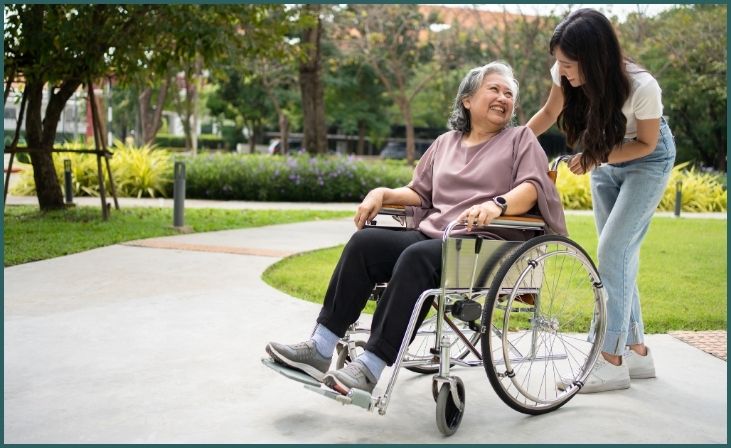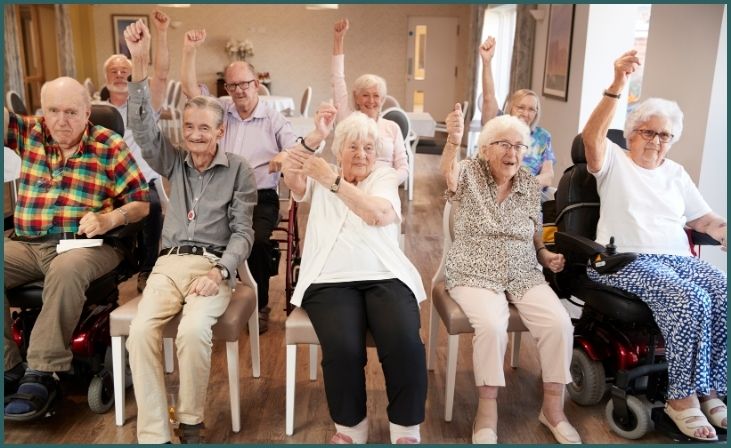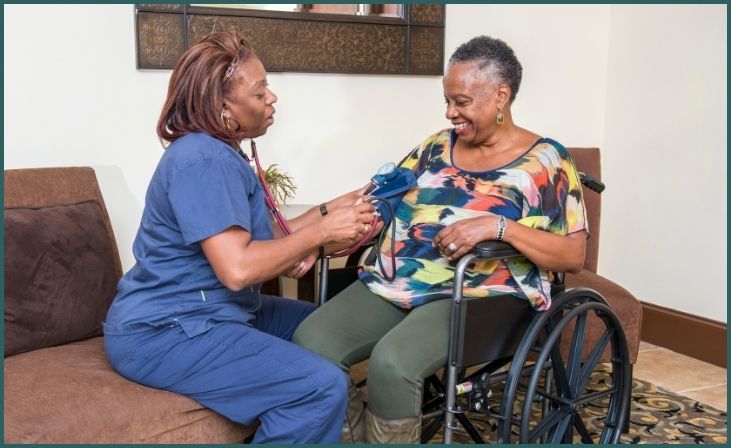Caring for seniors at home is a significant responsibility that requires attention, compassion, and effective strategies to ensure their well-being. Whether you’re a family caregiver or a professional, implementing these tips can help create a supportive environment that fosters independence and addresses the unique needs of seniors.
9 Best In-home Care Tips For Seniors
1. Establish a Routine

A planned daily practice gives seniors a sense of steadiness and security. Regular schedules for meals, medications, exercise, and social activities can significantly reduce feelings of confusion and disorientation. Establishing a routine creates a sense of normalcy and enhances a senior’s ability to anticipate and prepare for daily tasks. Adjust the routine as necessary to accommodate any health, mood, or personal preferences changes. A predictable pattern contributes to a feeling of control and independence, which is essential for maintaining mental and emotional well-being. Incorporate small rituals or enjoyable activities into the daily routine to make it more engaging and fulfilling.
2. Ensure Safety at Home
Safety is paramount in creating a secure living environment for seniors. Begin by conducting a thorough home assessment to identify and address potential hazards. Put up grab bars in the bathrooms, ensure rugs don’t move around, and eliminate anything that could cause someone to trip or fall. Ensure that emergency contact information is easily accessible, and consider installing a medical alert system for immediate assistance if needed. Adequate lighting in hallways, staircases, and entryways can greatly reduce the risk of falls. Regularly review and update safety measures to adapt to any changes in the senior’s physical abilities or health conditions. Consider using motion-sensor lights and ensuring that all home areas are well-lit.
Read Also: 8 Best Practices For In-home Care For Seniors
3. Promote Social Engagement
Social interaction is critical in maintaining mental health and preventing feelings of isolation among seniors. Encourage participation in community events, local senior centers, or family gatherings to keep them engaged and connected. If physical outings are challenging, leverage technology for virtual communication. Video calls, online forums, and social media can help bridge the gap between physical and virtual interactions. Activities like book clubs, game nights, or regular phone calls can foster meaningful connections and combat loneliness. Engaging in hobbies or group activities boosts mood, helps maintain cognitive functions, and provides a sense of purpose.
4. Monitor Nutrition
Proper nutrition is vital for seniors, as dietary needs often change with age. Develop balanced meal plans that include a variety of nutrients from whole foods like fruits, vegetables, lean proteins, and whole grains. Pay attention to any dietary restrictions or medical conditions that require specific dietary modifications, such as low-sodium or sugar-free diets. Encourage adequate hydration by ensuring that water is readily available throughout the day. Involve seniors in meal planning and preparation to make mealtimes more enjoyable and to encourage them to eat healthier. Consider exploring new recipes and incorporating their favorite foods to make nutritious meals more appealing.
5. Encourage Physical Activity

Regular physical activity is crucial for maintaining seniors’ mobility, strength, and overall health. Tailor exercise routines to their abilities and preferences, focusing on low-impact activities such as walking, swimming, or gentle yoga. Do workouts that improve your balance and flexibility to lower the risk of falling. Simple activities like gardening, light housework, or dancing can also provide beneficial physical exercise. It is important to always get advice from healthcare specialists to ensure the fitness routine is safe and suitable for the senior’s health. Explore local exercise classes or community programs designed specifically for seniors to provide additional motivation and social interaction.
6. Support Medication Management
Managing medications can be complex for seniors, particularly those with multiple prescriptions. Establish a clear and organized medication schedule, and use pill organizers or reminder apps to help track dosages and timing. Regularly review medications with healthcare providers to check for potential interactions, side effects, or changes in treatment needs. Ensuring that medications are taken as prescribed can prevent complications and support overall health. To ensure you never run out of important medicines, you might want to set up a way to refill orders beforehand. Educate seniors about their medications and the importance of adherence to promote understanding and compliance.
7. Foster Independence
Maintaining independence is vital for seniors’ self-esteem and overall happiness. Encourage them to participate in daily activities as much as possible, from dressing and personal grooming to meal preparation and household chores. Allowing them to make decisions about their routines, such as choosing what to wear or what activities to engage in, can improve their sense of control and self-worth. Adapt tasks to their capabilities, offering assistance when necessary but stepping back to let them contribute as much as possible. This balance gives seniors a sense of worth and confidence, making them feel capable and respected.
Read Also: Top Benefits of 24-Hour In-Home Care for Seniors
8. Maintain Regular Health Check-ups
Routine health check-ups are essential for monitoring health conditions and preventing potential complications. Schedule regular visits with healthcare providers to track changes in health and address any emerging issues. Encourage seniors to stay up-to-date with recommended screenings and vaccinations. If in-person visits are challenging, explore telehealth options for convenient medical advice and support access. Early identification of problems and quick action are possible with proactive health management. This can improve health results and quality of life.
9. Communicate Openly

Effective communication is the foundation of high-quality in-home care. Foster an open dialogue about any concerns, preferences, or changes regarding care and daily living. Regular check-ins and conversations can strengthen the caregiver-senior relationship and ensure care strategies align with their evolving needs. Providing a platform for seniors to voice their opinions and preferences enhances their emotional well-being and makes them feel more involved in their own care. Being attentive and responsive to their needs and feedback is crucial for maintaining a positive and supportive caregiving environment.
Conclusion
Providing care for seniors at home is a rewarding yet demanding responsibility. By following these best practices, caregivers can make a safe, healthy, and happy place for everyone. Fostering independence, encouraging social engagement, and maintaining open communication are essential to ensuring that seniors feel valued and well cared for in their homes.
FAQs
What is the best way to manage a senior’s medication?
To manage medications effectively, establish a clear schedule, use pill organizers or reminder apps, and consult with healthcare providers regularly to review prescriptions and avoid potential interactions.
How can I encourage my senior loved one to stay socially active?
Encourage people to participate in sports, neighborhood events, or family get-togethers. If physical outings are challenging, use technology to facilitate virtual connections. Having skills and doing social things can help keep your mental health in good shape and make you feel less lonely.


